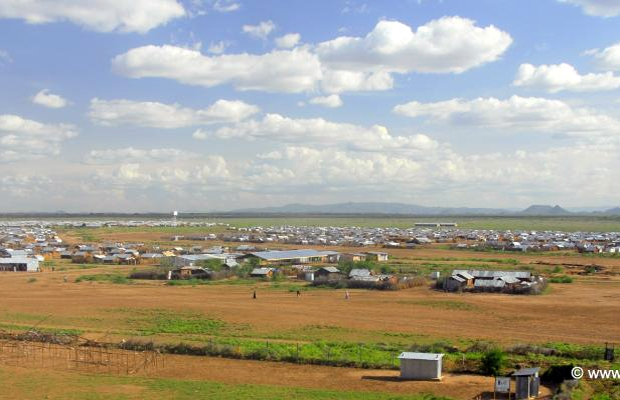
KENYA: Refugee Youth Find “New Beginnings” with Job Training
The current economic crisis is hitting the world’s youth especially hard, according to the International Labour Organization. This specialized agency of the United Nations—which promotes social justice and internationally recognized human and labor rights—recently published its “Global Employment Trends for Youth Report”. According to this report, of the world’s estimated 211 million unemployed people in 2009, nearly 40 percent—or about 81 million—are between 15 and 24 years of age.
An innovative vocational education program targets refugee youth for job skills training to enhance their livelihoods and achieve self-sustainability. The Salesian Missions program, “New Beginnings,” is financed by the United States Department of State’s Bureau of Population, Refugees and Migration.
“Refugee youth are some of the world’s most vulnerable youth,” says Father Mark Hyde, director of Salesian Missions. “They often have survived incredible violence, struggled to find food and shelter in the refugee camps, and then find that there is little opportunity for education. We are working to change that.”
This month, the “New Beginnings” program begins in Kenya, focusing on youth at the Kakuma Refugee Camp. Kenya is home to 340,000 refugees, and hosts the largest refugee population in eastern Africa. Kakuma Refugee Camp currently houses approximately 70,000 refugees from Sudan, Somalia, Ethiopia, Eritrea and several other countries in East Africa. Refugees continue to arrive without a sustainable income. The program will target 900 youth ages 15-30 with an emphasis on those who are the primary wage earners for their families. A particular goal is to recruit women, and empower them with the skills and confidence to enter the workforce.
“It is critical that students receive training where there is a demand for workers,” explains Fr. Hyde. He adds that training will include three month and 12-month certificate programs which will be offered in market-driven courses such as carpentry, computers, dress-making, electrical installation, auto mechanics and agriculture. English will be taught, as well as classes in gender-based violence awareness and prevention.
The program will assist students interested in starting small businesses or cooperatives after completing their courses. It will include support for business management questions, additional training if needed to keep up with the market, and assistance in the job placement process.
“We’ll provide micro-grants, or capital such as tools or equipment, to students who develop effective business plans,” says Fr. Hyde. “We believe that once a student, always a student.”
The first “New Beginnings” program was launched in 2010 in southern India, with a focus on the Sri Lankan Tamil refugees. There, nearly 300 students are receiving training, which includes video technology. Many students are taking the opportunity to use their new-found technical skills to tell their own personal stories as refugees.
Salesians around the world operate an extensive network of schools: more than 1,316 elementary; 1,400 intermediary and secondary; 32 colleges and universities; 300 industrial skills trade/vocational; 90 agricultural; 860 nurseries; 220 clinics and hospitals; and 1,670 social assistance centers and programs for orphans and street children.
Sources: International Labour Organization , UN International Year of the Youth
